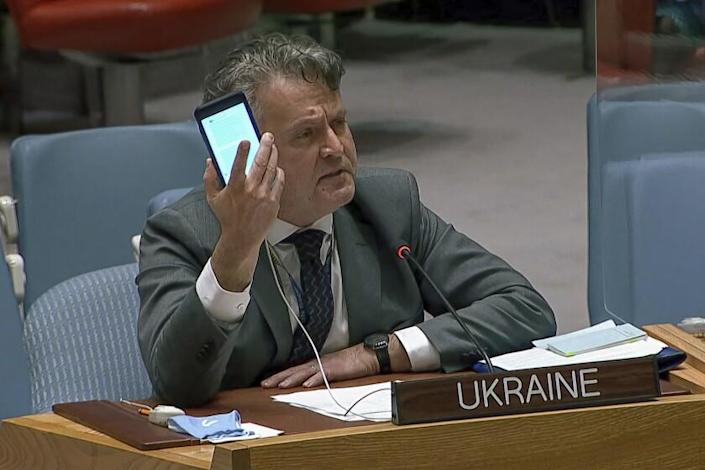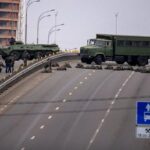
Around the clock, senior U.S. diplomats have been in intense talks with their counterparts from dozens of countries hoping to persuade them to back a tough United Nations resolution condemning Russia’s invasion of Ukraine.
Biden administration officials are pretty sure the resolution will fail in Friday’s emergency meeting of the 15-member U.N. Security Council. But they say they have a broader strategy.
The draft of the resolution, which circulated Thursday, demands the immediate, complete and unconditional withdrawal of Russian forces from Ukraine. Pushed by the U.S., it is expected to go before the Security Council in Friday’s session, where Russia, one of five permanent members of the group, is certain to veto it.
“And in so doing, they will underscore their isolation,” a senior administration official said. “The resolution condemns, in the strongest terms possible, Russia’s aggression, invasion and violation of Ukraine’s sovereignty.”
At that point, the official said, the U.S. will attempt to put the resolution before the full 193-member General Assembly, where there are no vetoes and only a simple majority is needed to pass.
Rallying that majority, however, has been a surprisingly difficult task for American diplomats. Secretary of State Antony J. Blinken and his deputy, Wendy R. Sherman, as well as other officials, have been on the phone to counterparts from a host of nations, including Portugal, Turkey, Israel and Saudi Arabia.
India, for example, has been an especially prickly case, and potentially an embarrassment for the administration. In addition to historic ties with Moscow, New Delhi in recent years has built a significant defense and diplomatic partnership with Washington.
But India was tepid in its initial response to Russia’s aggression. During a Security Council session that unfolded in New York on Wednesday night as President Vladimir Putin unleashed Russian troops on Ukraine, India’s representative called for de-escalation but did not condemn Moscow.
Asked if India and the U.S. were “fully in sync” on the crisis, President Biden said Thursday: “We haven’t resolved that completely.”
Blinken spoke to Indian External Affairs Minister Subrahmanyam Jaishankar later the same day and “stressed the importance of a strong collective response to condemn Russia’s invasion and call for an immediate withdrawal and cease-fire,” State Department spokesman Ned Price said.
Ukraine’s ambassador to India, Igor Polikha, made a public plea to Indian Prime Minister Narendra Modi to appeal directly to Putin, saying Delhi’s “special relationship” with Russia might carry weight, according to India Today Television.
Turkey is another country that, like so many others, has mixed feelings about the wider global rivalry between the U.S. and Russia. Many countries fear Putin’s wrath or are reliant on Russian energy exports or other trade, and hesitate to be seen siding with Washington against Moscow. Turkey, while a member of NATO, has developed a closer relationship with Russia in recent years, notably with the controversial purchase of S-400 air defense systems and other materiel.
Turkish President Recep Tayyip Erdogan immediately branded Russia’s invasion as “unacceptable.” But U.S. diplomats would still like to see a more formal and explicit condemnation from the Turks.
This story originally appeared in Los Angeles Times.




